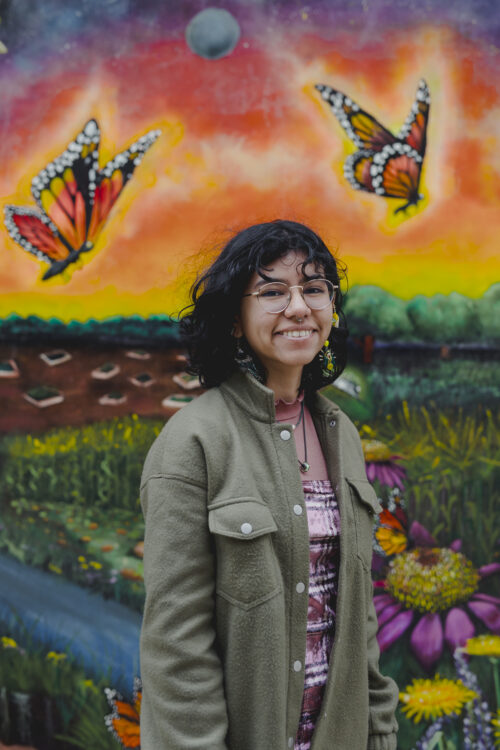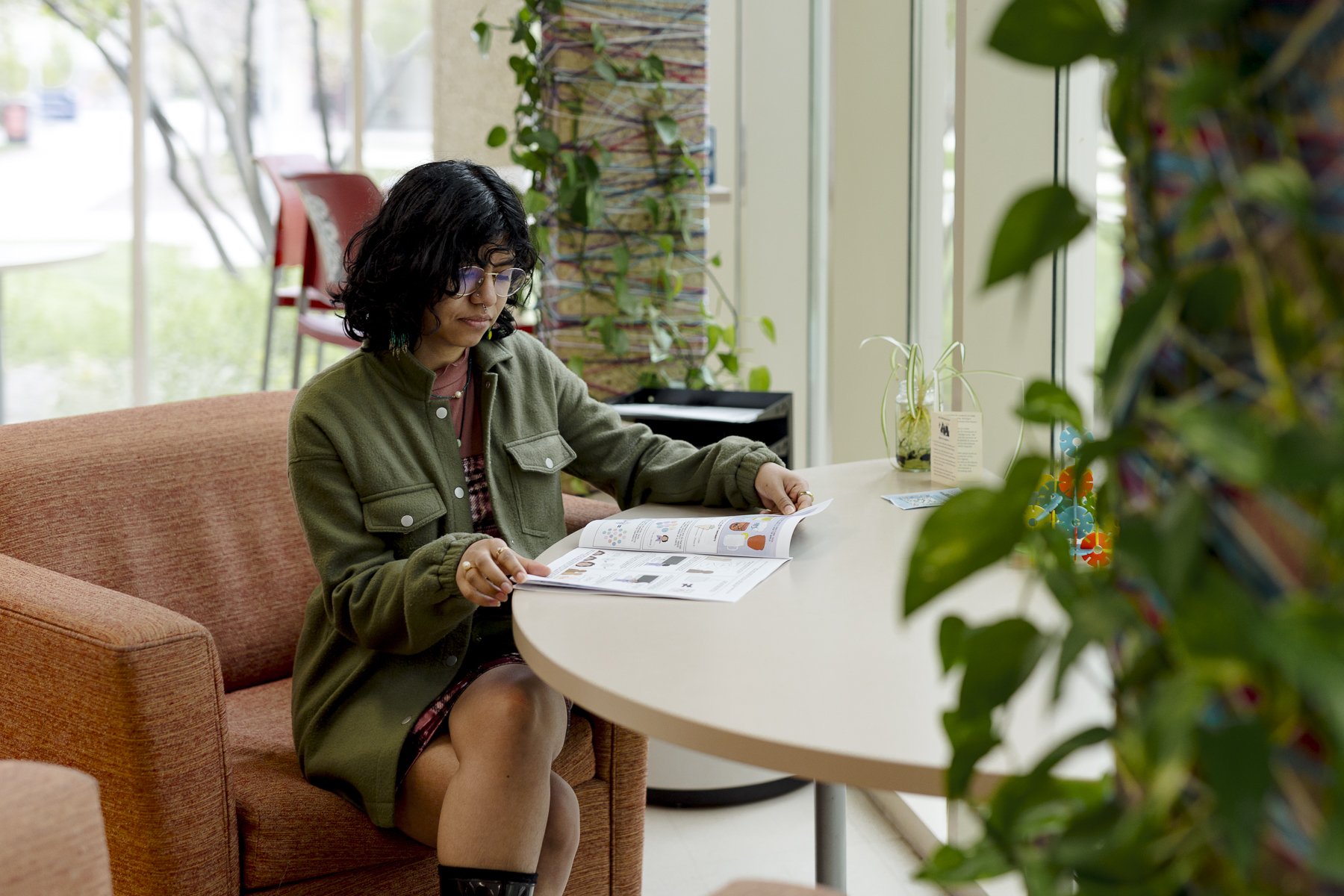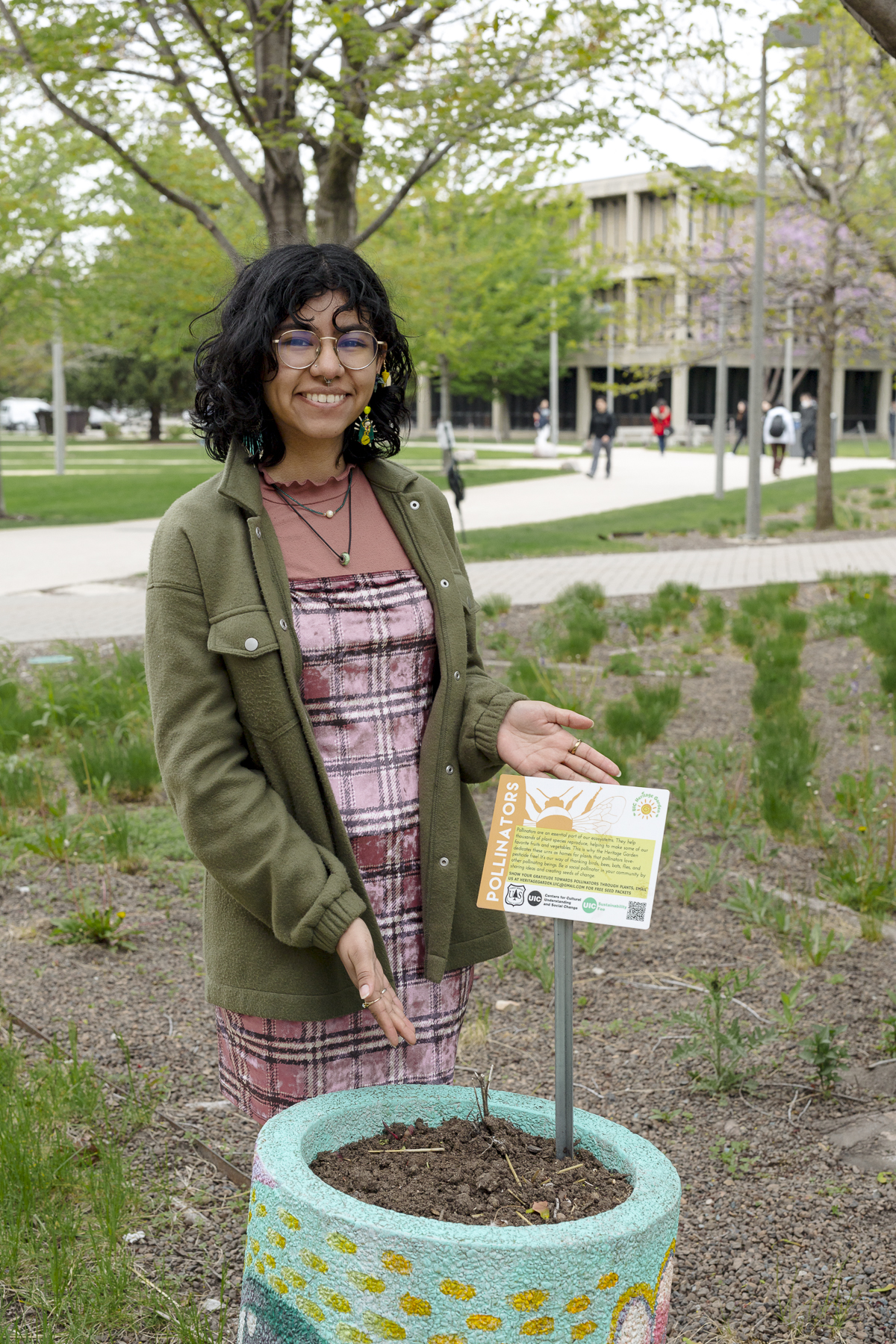BVIS grad strives for diversity in medical illustration
Monday, April 29, 2024

From a young age, Eyzel Torres-Vicencio ’22 BS RS, ’24 MS BVIS was drawn to both science and art. Whether she was translating for her parents at their doctors’ appointments, catching insects to study them or admiring her artistic family members, Torres-Vicencio was developing the skills and interests she would later apply as a student in biomedical visualization.
Torres-Vicencio decided earlier than most students that biomedical visualization was the perfect fusion of her longstanding interests. She is the first BVIS student to graduate through the Guaranteed Professional Program Admissions initiative, which selects first-year students for guaranteed admission into a professional or graduate program after they finish their bachelor’s degree.
The first in her family to attend college, she was awarded a number of scholarships, including the $20,000 President’s Award. She was one of five students recently highlighted by the UIC communications office as an “inspiring grad.”
Torres-Vicencio said she wants to help people understand their health, especially mental health and reproductive health, two areas that are still stigmatized misunderstood. With her BVIS degree, she hopes to pursue a career in public health.

“She really is a humanitarian at heart,” said Leah Amanda Lebowicz, director of the BVIS program. She has insight into tailoring content for specific audiences so they feel empowered.”
As a young translator at her father’s doctor appointments, Torres-Vicencio learned that language can be a barrier to communicating medical information. So can illustration that doesn’t reflect the diversity of its audience, she said.
“Diversity is extremely important because if you don’t include authentic representations of people in your work, they might not be receptive to the information that you want them to learn,” Torres-Vicencio said. “And if they’re not receptive, they’re not going to take those steps to listen to the information or process it.”
Take a look at most medical illustrations and you’ll see what’s long been held as the standard of a “healthy” body, Torres-Vicencio said — skinny or fit, nondisabled, white, not wearing glasses. That’s gradually changing, she said, as more medical artists inject diversity into their work.
“Many people don’t see themselves in medical illustrations or art,” she said. “And so, for example, if I am learning about an ovarian cyst and everything that I look at has someone who doesn’t look like me, I’m not going to be receptive to that information as I much as I could be, because I don’t see myself in it.”

Torres-Vicencio designed and illustrated plaques for the Heritage Garden near the Latino Cultural Center that explain the importance of pollinators to the environment. She wrote and illustrated a comic, Plant Power: A Guide to Managing Anxiety Using Medicinal Tea, that has been distributed on campus.
She credits her classmates, colleagues and professors for helping her reach the finish line.
“A big reason that I didn’t give up is because I’ve always been in community. It’s really hard to get through things on your own,” Torres-Vicencio said. “I feel like I’ve found a lot of really great people here that helped me stay motivated.”
This article has been edited for length and clarity by Emily Parenti-Lopez.